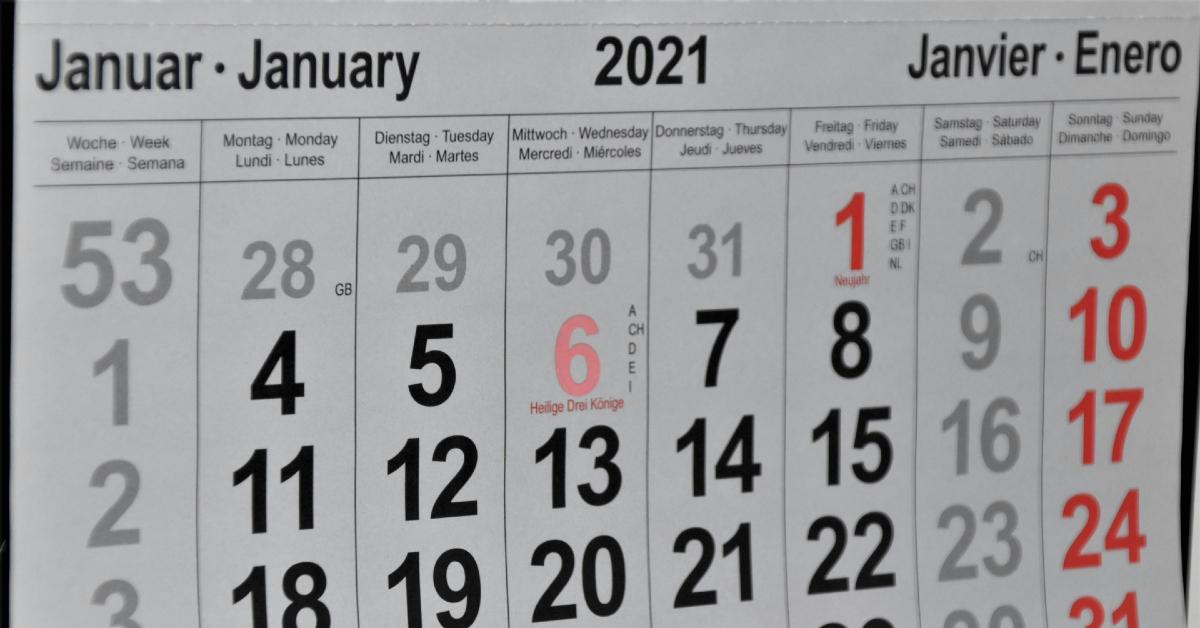A 13-Month Calendar More Accurately Reflects Lunar Cycles, so Why Are There 12 Months?
Julius Caesar's astronomers first advocated for a 12-month calendar.
Published March 26 2025, 3:48 p.m. ET
There are a few basic facts of life we're all taught at a young age. "Sticks and stones may break our bones, but words may never hurt me." Also, we should always look both ways before crossing the street, and if we ever catch on fire, we stop, drop, and roll. We learn our ABCs thanks to a nice little sing-song tune, and there are seven days in a week with respective names, and 12 months in a year, also, with their own monikers.
However, the latter hasn't always been the case. In fact, we used to have 13 months in a calendar year. So why is our calendar 12 months instead? And why did it change?
Why are there 12 months instead of 13?
According to the NCESC, there's a long history behind this alteration. The first "significant" change regarding the number of months in an annual time frame actually dates back to 1582. Pope Gregory XIII issued the amendment as a response to getting rid of the Julian calendar.
This is due to the fact that the 12-month outline more closely follows a tropical year, meaning it accurately documents the amount of time it takes planet Earth to revolve around the sun.
But there are other reasons why we "lost" a month, too. And it all boils down to mathematics, not just astronomy.
Previously, those who advocated for the 13-month calendar stated that it was a more stable way of divvying up the year. However, others stated that it wasn't as easily divisible as a 12-month variant. Over time, more and more folks began adopting a 12-month approach, as it offered more convenience and efficiency when it came to "daily life and various calculations."
Although the Gregorian Calendar was introduced in 1582, it dates back much further. Julius Caesar's astronomers discovered that there were 12 lunar cycles in a year. At the time, Rome had a 10-month calendar its citizens followed, but scientists during the famed Roman Emperor's reign argued for a time-measuring metric that reflected these lunar cycles.
Due to the "discrepancy" in lunar cycles with months, leap years were created. This is why February ended up gaining an additional day "every four years" as a means of "align[ing] the calendar with the solar year."
The NCESC goes on to write that "over time, this 12-month calendar became the standard in most cultures."
As a result, the Gregorian calendar sports 12 months that vary between 28 and 31 days each to accommodate these lunar cycles. But there are other calendars that follow Lunar calendars to a T, such as the Islamic calendar, which is made up of 13 months. Each month in this calendar lasts for a single lunar cycle.
If we adopted a 13-month calendar, several social changes could occur. Traditions associated with seasonal changes would be upended. Currently, corporations issue reports based on quarters of a year, and a variety of industries plan strategies based on these seasonal distinctions we've collectively made.
Furthermore, the NCESC states that a shift to a 13-month calendar "would have implications for various aspects of life, from agriculture and weather patterns to cultural and festive traditions."
The outlet goes on to reference individuals who argue for a global shift toward 13-month calendars.
These proponents state that because they more accurately align with astronomical events and "natural cycles," a "13-month calendar could provide a more harmonious and balanced system."
However, if one is interested in charting astronomical events, there are plenty of research centers that do just that. So you don't have to rely on a calendar for that information.
Which calendar format do you prefer?

